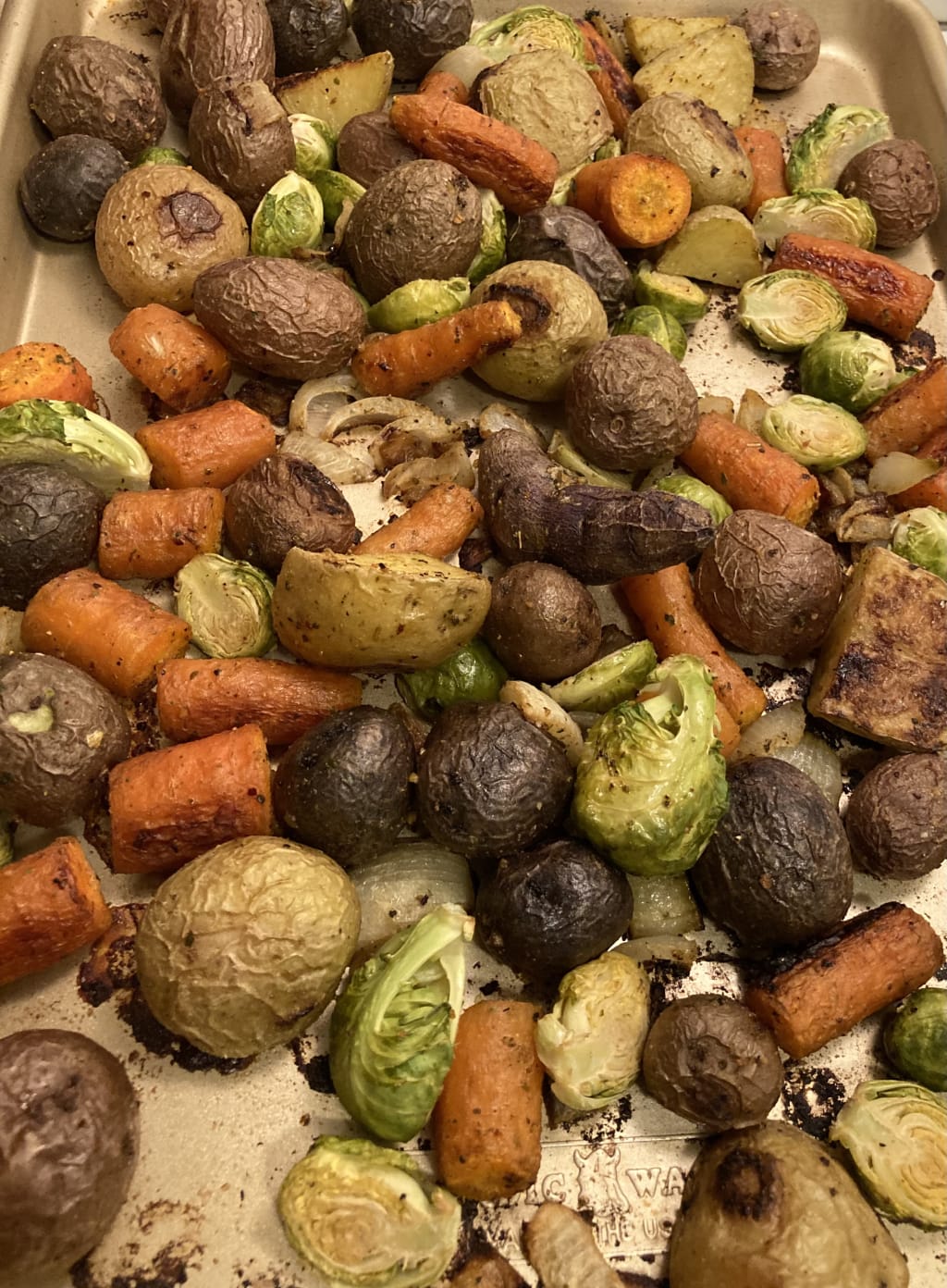What’s for dinner?
Ugh…there’s NOTHING to make

I search through the limited pantry, no more than a box really, a few cans, a few bags…
Somehow, I need to create a meal from this.
I pull out a bag of yellow split peas, a can of mixed vegetables, a can of cream soup, with the label damaged…celery I think(?), and a couple of cans of tuna. About two hours later, we have a serviceable meal, and actually better than I might have expected.
I remember back to another time, what feels like another life.
A full pantry, a full refrigerator, a full freezer, and in fact, a chest freezer for the overflow. I look over the contents and sigh heavily, ugh, nothing to make for dinner.
Not nothing. Nothing easy. Oh how different those categories are. But in our modern lives, they begin to feel like the same thing.
When we think of food waste, we think of dumpsters full of expired food and restaurants throwing out full trays of food because they didn’t sell that day. We think of the capitalist nightmare of grocery stores and restaurants dumping bleach on edible food to prevent the hungry from taking them.
What is missing from this picture?
Our daily lives hold far more food waste than most of us would like to admit or realize.
Our brief time as nomadic, a vanity really, we were homeless and we knew it, our family of three lived out of a pop-up camper and our minivan. It was not the glamorous life of freedom on the road, throwing off the chains of a “regular job” and the ability to travel wherever we might want. Rather, it became a daily struggle to survive. Where was the next tank of gas coming from when our allotted time at the free campsites ran out? Where was the next meal coming from when all our money was going to fuel and we couldn’t sell any product? How were we to keep our clothes and our bodies clean? But those are questions for another time. Here, today, I am trying to stay focused on the lessons that time taught me regarding food.
In our daily lives, we build up supplies of food in our homes. Often, we don’t even remember where some things came from. That can of beets that you keep shuffling to the back of the pantry, that bag of dried beans you know you bought to make baked beans, but the canned ones were always more convenient, and despite your best intentions, when it came down to it, a trip to the store was easier than soaking, pre-cooking, then cooking. And what were you thinking when you bought canned spinach?!
I have spent the last year hearing “When covid is over….” There is a part of me each time that has bit my tongue and done my best not to respond. It won’t be over. It has become a part of life. Does this seem unrelated? It’s not.
When covid began, suppliers suddenly had massive supplies of food products, with no outlet for them. The naive suggested simply “distribute them to the needy”. A fine and beautiful thought certainly, but not a feasible one. I recall a farmer rolling his eyes when that suggestion was made, on camera, he finally dropped his head, looked back up, and said, “what am I supposed to do with a million gallons of milk?” The reporter interviewing him stammered, trying to come up with a viable response. The farmer, predictably, just nodded and turned away.
In the formal interview released later, the farmer relates that particular farm produced almost exclusively for restaurants and milk was packaged in 10 gallon food service grade bags. Do you know how big and awkward a ten gallon bag of milk is? Imagine trying to put that in your fridge, use it in time, even if you could overcome the impossible distribution issue. The public cried out about the waste…but they didn’t understand the magnitude of it. Farmers tilling crops into the ground, hopeful it at least enriched the soil for (hopefully) the next crop…whenever that might be. Better than letting it rot on the ground and invite disease into your soil, but so disconnected from where our food comes from, most only decried the actions of farmers who often had no other choice.
The second stage, as I have termed it, has become almost as bad. People at levels of “cabin fever” never seen in our modern society, flooded out, eager to go, go anywhere, after the vaccine became available. Many were still not vaccinated, but they happily told themselves the lie, “oh enough people are, I don’t need to be, it won’t affect me”. And when we saw the resurgence of the virus, the idea of going back into their houses was met with dire resistance, of a sort that could change society for the better if channeled in the right direction, but instead channeled into selfish greed.
Restaurants, those that had survived, met the resurgence with open and eager arms, and demands to their suppliers for levels of supply that exceeded those prior to covid. Their expectation in these circumstances, was an easy order, a delivery, you know....normal.
Instead, farmers, having already lost so much, some already bankrupted by the losses suffered, hesitant and conservative now, had produced smaller quantities, different foods, things more suited to grocery store markets than to restaurants. Now, with the restaurant demand returned and meeting derisive response to their plight instead of empathy and compassion, many farmers stepped away altogether. Why produce for people who don’t even appreciate what you are doing? (And this doesn’t even begin to address the behavior of insurance companies who were supposed to support farmers and small restaurant owners and instead took appeals to a federal level and used any and every loophole to avoid agreed upon payments.)
Frustrated people, driven to grocery stores instead of going to the restaurant like they want to, clear the shelves. The supply is not there to refill them.
Suddenly, you find the front of your pantry bare. The only thing that is there is those items eternally shoveled to the back. You think to yourself “is this even still good...do I even know what to do with this?”
We are faced with a reality that few are choosing to accept. And the longer we go with the blinders on, the longer we deny the reality of a world at very least long term changed, if not permanently changed, the worse the problem will become.
Supply chains could take years to recover. Production chains, even longer. Food prices, already bloated, will continue to rise, in a day when tropical fruits have become easier to obtain than simple grain products like flour and pasta, we finally start to ask ourselves, “how do we fix this?”
The only answer that possibly CAN work, is together. Those with the skills to cook, to use those unusual ingredients in palatable meals, must teach. We must learn to garden, to farm, to not put all our trust blindly into entities that we haven’t thought about in years.
As a society, we have become dangerously disconnected from our food. From where it comes from, from what it truly means to us as a people, we take it for granted. And suddenly...forced to think about it, we don’t even know where to begin.
About the Creator
Willow Phoenix
If my path has been conventional, then I think convention must be redefined, but perhaps that wouldn’t be so bad after all.
Self identifying as agender and an artist and the rest not withstanding, now based out of Seattle, hi, I’m Willow.






Comments
There are no comments for this story
Be the first to respond and start the conversation.